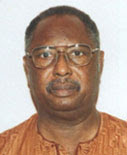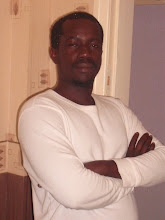
The year is slowly but surely edging to an end. With it so many failed hopes, barely realized hopes and unaccomplished dreams fade way. There is no such country where this situation is so realistic than it is in Gambia, all because of a failed and devious political system being shoved into the throat of the masses.
The responsibility to put a stop to this status in Gambia rests in every one who genuinely cares about freedom and the universal human rights. This piece is my humble contribution towards this in the form of a New Year message to the men and women of the Gambia Armed Forces, in pre-emption of their commander-in-chief’s murderous instructions as a New Year message.
It is incumbent on you the men and women of the GAF to beat Jammeh here to put you into sense and make you reflect on the suffering you yourselves have undergone, and have been undergoing in his hands during the past years. My fervent hope is that after digesting this message you will act, as that is the only sure way to halt the ceaseless frenzy of mistreatment that characterizes your professional ranks these days, and, in doing so, you will be accomplishing a genuine mission for your people, the people you are supposed to serve in the noble profession of yours, by salvaging our nation from further chaos.
The recent reshuffling and purging of the Gambian army goes to confirm that Jammeh’s first constituency as president is not the entire populace but the armed forces. As far as he is concerned, the most important job in the land is soldiering. He has no doubt made it a habit to reiterate this at any slightest given opportunity. This is because not only does he wants the populace to believe him, but perhaps more importantly he wants to impress you the soldiers that only he [Jammeh] has your interest, naively overlooking the fact that by treating the top brass of the force in his unbecoming way he is in fact putting the integrity of all of you at stake.
By Jammeh’s own admission, close to 14 million dollars have been pumped, according to him, to maintain the already flamboyant life styles of your officers. You all know that in today's Gambia if you attain the rank of a captain and you are willing to be a trigger-happy, gun-wielding soldier, ready to terrorize your own defenseless civilians on the orders of Jammeh, what he calls loyalty, you are almost certainly going to ride on 4x4 pick ups with tinted glasses and roam the streets with impunity.
But hey, ask yourselves, what has become the fate of all those who went through such unenviable path – Musa Jammeh, Tumbul Tamba, and just recent Bombardier and Gibril Bojang, just to name a few.
By allocating huge amount of unaccounted monies collected from rogue states such as Venezuela and Iran to you, Jammeh has enticed a preferentially treated section of the army into total submission and transformed its officers to zombies and robots good enough only to obey his orders in exterminating whatever sign of divergent view that emerges from any end of the Gambian society. He would shout at the top of the sky that soldiers sacrifice to keep the country as the nation sleeps, and all other nonsense and unrealistic praises, but in actual fact what Jammeh needs from your total submission is to safe guard his selfish, paranoid head and throne. As long as you the army will continue to do his killings and harassment for him, Jammeh will accord you all the temporary comforts of life at the expense of the majority of people whose freedom he seized and whose dignity and rights he continues to erode. And remember, these people are your own flesh and blood. The leader is worthless without the complete happiness of the people. The general upliftment in salaries and other benefits that Jammeh is claiming to have given you the army does not come without a prize. He wants you to passively obey him and swim in temporal wealth while he plunges knife into the hearts of the citizens.
After all he used soldiers to shoot 14 innocent students, he terrorizes his political opponents and he even boast of sending fellow soldiers six feet deep into their graves. What callous act by such a dangerous and beastly man.
Today the Gambian soldier is reduced to a robot, not even able to say a word about his job or even name President Jammeh in public, among his family or among his own colleagues. No one talks to anyone about the job in the barracks, where everyone lives under perpetual fear, careful of one’s movement and associates, all because one man wants to watch over your deeds, words or movements, so that he can take you out any time he feels like you are becoming to think like a human being. This situation in Gambia is only reminiscent to the excruciating days of the holocaust, or the oppressive Stalinist era. This puts the man, Jammeh, on the same rank with the devilish Hitler, Stalin and their kinds in history.
Let me at this point make it clear that I am not against soldiers, and certainly no Gambian is. You are our brothers and sisters, fathers and mothers. Rather, I am particularly against the habitual bastardization of the true spirit of the role of the armed forces by turning it into a mere militia group and put to the murderous service of only one man who has shown enough evidence of blood thirstiness. I think even soldiers can bear me witness that this stupid system is bloody from the root to the top most branch.
Let me ask you, my dear soldiers, how long are you going to sit by while this monster swallow each of you one by one? Each time Jammeh humiliates, kills or locks up an officer, others are ready to jump to fill his place with happiness, only to be shown the same path of jungle justice. When are we going to learn a lesson from the fate of those before us and put a stop to this nonsense, ones and for all? Are we not aware that if we come together we can end this madness in one hour and then Gambians will live in peace for the rest of our lives?
I am not a soldier but intelligence sources told me how Lang Tombong crushed the coup of 2006 only to be dumped, humiliated and almost certainly heading to jail. Now consider these, the same men who sits and drink Attaya with the disgraced General are being sworn in to succeed him until their turn comes too to follow suit.
Your Oga will use you to do all the dirty things for him, until you your selves become Mr dirty and then he gets rid of you when he feels you have no bargaining power. Why is everyone afraid of a mortal human being who kills innocent human beings at will?
I hope that you will take advantage of the New Year to get your self and your dear country from the clutches of this satanic monster.
By the way, merry Christmas and happy New Year.


.jpg)



